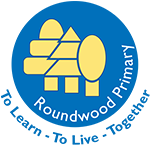At Roundwood Primary we are aware of the importance of online safety and the increasingly important role it plays in our children’s lives. We are committed to teaching the children how to be safe online. This is done as a whole school approach, both as discreetly through our Computing lessons and also across other curriculum lessons.
We monitor our children’s use of the internet closely and we hope the following information will assist parents and staff in keeping our children safe.
Child Exploitation and Online Protection Centre
The internet can be a fantastic place for children and young people where they can talk to friends, be creative and have fun. However, just like in the real world sometimes things can go wrong.
If you or your child are worried or upset about something which has happened on the internet there is help out there – CEOP Police
- Online Safety Guide - Parents and Carers
- Family Online Safety Plan
- What to trust online (A Parents and Carers Guide)
- Parents and Carers Resource Sheet
- Family Activities
- Show Your Support
- Conversation Starters
- Children's Devices Online Safety Guide for Parents
- Conversation Starters for Parents and Carers Online Content
- FIFA 20 Online Safety Guide
- Parenting in a Digital World
- What Parents Need to Know About PlayStation 5
Key Stage 1:
Think U Know Age 5-7 – This contains cartoons and games to help children understand eSafety and the pitfalls of being online. There are also printable activities which the children can complete perhaps for homework to bring more attention to parents.
Key Stage 2:
Think U Know Age 8-10 – Games and quizzes to do with internet safety and appropriate use of technology.
All Age Groups:
Childnet International – Cartoons to explain the safe use of technology and create discussion.
e-Safety Education Resources – Cartoons and quizzes to create discussion either at home or at school.
Children’s Online Safety Test – Virgin Media O2 have created a children’s internet safety test to help build awareness for parents and children of all ages to ensure they are better protected online.
To get you up to speed on the things you should be keeping an eye out for, check out our Children’s Internet Safety Test below, and keep on top of how your little ones are making use of the world wide web.
Teachers and Parents:
• NSPCC Share Aware – help your child stay safe on social networks.
• Parent Info – Autumn 2015 saw the release of this excellent new website. It was developed out of a partnership between CEOP and The Parent Zone and contains lots of good eSafety advice.
• Teach kids online security basics – If you’re a parent, you can help your kids use the Internet safely by teaching some basic rules. Here are some basic lessons that parents can help their kids learn.
• Safer Internet – Here you will find e-safety tips, advice and resources to help children and young people stay safe on the internet.
• Child Net– An organisation working directly with children, parents and teachers to ensure that the issues of online child protection and the safe and positive use of the internet are addressed.
• Think U Know – The Child Exploitation and Online Protection (CEOP) Centre has set up its own website which has been designed and written specifically for children, young people, teachers, parents and carers.
• Kidsmart – Kidsmart is an award winning internet safety website for parents and those working with children. It has been developed by the children’s internet charity Childnet International and has excellent information on many of the technologies used by children, with guidance on how to ‘stay safe’ online.
• Bullying – One in five young people have experienced bullying by text message or via email. This web site gives advice for children and parents on cyberbullying.
• Parents Vodafone – Being very accessible, this provides information and guidance to parents to help under the digital world. There is also an online test to see how much you know.
• Internet Matters – Lots of guidance and articles for parents about keeping their children safe online.
• Digizen – A website designed to strengthen awareness and understanding of what digital citizenship is. It encourages users of technology to be and become responsible DIGItal citiZENS.
• YouTube – A parents’ guide to YouTube.
• Minecraft – A parents’ guide to Minecraft.
• Xbox 360 and Xbox Live – A webpage showing you how to set parental controls for Xbox 360 and Xbox live.
• Learning disabilities, autism and e-safety guide – This guide outlines some suggestions to help parents limit the risk of their child having negative experiences online and understand what action can be taken if they do.
• Advice for adoptive/foster parents – The UK Safer Internet Centre has worked together with Islington Council to create leaflets for foster carers and adoptive parents.
This is not an exhaustive list of everything that is available but it does give a good starting place for activities to build awareness of how to do the right thing, both at home and at school.
